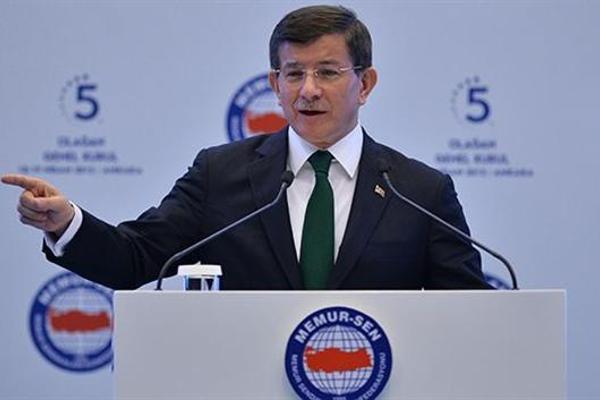Turkish PM Davutoğlu endorses meritocracy over nepotism
ANKARA


AA photo
In an apparent response to the opposition's rekindled accusations of nepotism, Turkish Prime Minister Ahmet Davutoğlu has endorsed meritocracy."We don't have nepotism in our culture. We will demolish the culture of discrimination and favouritism. Our only criteria would be based on merit and competency," Davutoğlu said in his address to the 5th general assembly of Memur-Sen, a civil servant union, in Ankara on April 18.
Davutoğlu, a former scholar, said that the Ottoman Empire enjoyed its heyday when it was ruled by meritocracy. "And when the state is ruled with a culture that favors friends or relatives [of administrators], you start to see the signs of a collapse," he added.
As the June 7 general elections approach, accusations of nepotism against the ruling Justice and Development Party (AKP) become one of main themes in campaigns of Turkey's opposition parties.
A heated debate sparked around the subject late last year, when Republican People’s Party (CHP) Deputy Chair Haluk Koç disclosed a list of hundreds of relatives and friends of Cabinet members and the AKP lawmakers.
On Dec. 11, 2014, Deputy Prime Minister Bülent Arınç avoided to completely deny the claims, but Davutoğlu then responded by accusing CHP chair Kemal Kılıçdaroğlu of nepotism in return.
By citing their family ties to current officials this month, the AKP ruled out from its electoral list several candidates, including the son of Ankara Mayor Melih Gökçek who engaged in a bruising intra-party fight with Arınç.
However, the ruling party's candidates list included many names from the inner circle of Turkish President Recep Tayyip Erdoğan, such as his son-in-law, lawyer, speechwriter, advisor, advisor’s cousin, coordinator’s father, chief of staff’s wife and official singer.
A number of AKP politicians justify this decision by stressing that Erdoğan is exempt from party rules, as he was elected to Presidency, which is nominally a position above politics.
